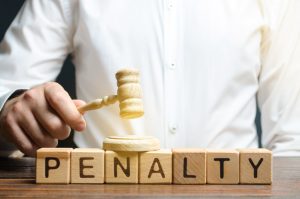Having a strong understanding of how corporate policy insurance claims work is important for any policyholder. There are many complex legal aspects to nearly any policy, which means that insurance companies always are getting advice from attorneys the moment they create their larger policies.
Commercial Policyholder Mistakes Can Lead To Harm
Unfortunately, property owners seeking coverage often do not consult with legal counsel. Claims filed by a policyholder are often dealt with solely by an insurance broker or public adjuster. These professionals understand the practices of the insurance business and they know what companies will and will not pay out. However, that is their extent of their expertise and policyholders often find themselves in a situation where they are scrambling to consult with an attorney only after the insurance company has refused to pay a significant amount of the claim.
That situation, which usually happens at least a year down the road in the claims process, can be a frustrating experience. Legal counsel will at that point share what mistakes were made.
The two main mistakes are:
1. Proof of Loss Deadlines
A proof of loss is a sworn accounting that details the loss. Most policies have a specific time period that a proof of loss must be submitted in, most commonly 90 days from the date of loss. There is no way to determine the amount of loss for complicated corporate claims in 90 days, however. Swearing under oath that the total of the claim represents the total loss is virtually impossible. Way after any proof of loss deadline passes, business interruption and other “time” losses can wreak havoc on your business.
Due to this unreachable deadline, many insurance adjusters often just ignore the proof of loss deadline connected with your policy. They will tell the policyholder that it is not necessary to submit the proof of loss until there is an actual agreed-upon point of loss. This plays out to the point that if the insured submits a proof of loss before the insurer asks for it, this unrequested proof will be used as “hostile proof” by the insurance company.
Proof of loss mistakes commonly happen because policy language and the customs of the insurance industry do not match up. The majority of jurisdictions do not require a proof of loss from the policyholder, but there is no uniformity when it comes to the law. The only solution to the issue is to request an extension.
2. Suit Limitation Deadlines
The second factor that causes confusion during the claims process is being lulled into a false sense of security and missing a limitation when filing a suit. The most common limitations that exist when filing a suit with the insurance company are one or two years. This becomes an issue with complex claims that are not often settled within this time frame. For just one example, losses from an interruption of business can linger far beyond a two-year time period. These factors make it impractical for a policyholder to file a preemptive suit while the terms of the claim are still being sorted through.
Much like with the proof of deadline, the custom of the industry is just to ignore the suite limitation deadline. Insurance carriers will commonly negotiate on claims and write loss checks far beyond the expiration date on suit limitations.
The solution to this situation, also like with the proof of deadline, is to file for an extension with your carrier on suit limitations.
If you have questions on any of the mistakes that can arise filing an insurance claim as a commercial policy holder, call hurricane damage and property insurance claims attorney Daniel C. Tighe at 1-855-LOSS-PRO (1-855-567-7776).


